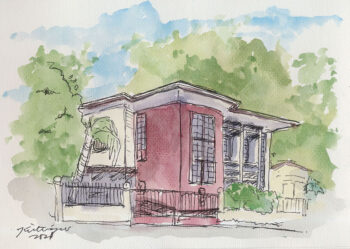(Speech of Presidential Adviser on the Peace Process Jesus G. Dureza at the Army Governance Forum on 7 February 2017 in Fort Bonifactio, Taguig City)
Men and women of valor, we now stand at a time when we, thus far, face the toughest hurdle in our peace and development roadmap. Over the weekend, President Duterte declared the cancellation of our peace talks with the National Democratic Front (NDF), as well as with the two organizations within its broad network — the Communist Party of the Philippines (CPP) and the New People’s Army (NPA). Given that we ended the third round of talks in Rome, Italy only two weeks ago on a high note, the turn of events unfolded before us may be described as unfortunate to the budding good relations we have with the CPP/NPA/NDF.
The past seven months that we were engaging with them had solidified our grounds to pave the way to our goal of bringing permanent peace and sustainable development. We scored a few strides along the way—in fact, unprecedented accomplishments, which built a positive haven for the rounds of talks that followed. The President’s declaration though may be a momentum breaker to what we have gained; but it must be clear that whichever course President Duterte chooses us to take, we adhere to his wisdom for we trust he holds the best of intentions for this country and its people.
Despite this recent setback, let me inform you that there is still a strong partnership among the branches in government to fulfill President Duterte’s advocacy on permanent peace and sustainable development. Although we are still waiting for specific guidelines from him, the government still upholds what we refer to as the primacy of the peace process. Our peace talks with the NDF may currently be dealing with serious blows, however, let us not forget that peace negotiations is only one of the important elements of our comprehensive peacebuilding efforts. In our parlance in the peace process office, we called it as the “Six Paths to Peace”.
Beyond the peace process with the communist insurgents, these Six Paths to Peace served as the skeletal framework of our policies and structures of our comprehensive peace efforts. It articulates that while peace negotiations is an important component, there are other equally significant concerns that we need to attend to: such as, building peace constituencies and addressing the immediate needs of conflict-affected and fragile areas just to name a few. It means that while the talks are stalled, there are still other vital paths we must traverse and work on. In other words, a stalled or cancelled peace talks is not the end of our pursuit to peace.
These paths to peace have driven various sectors to take part in building a culture of peace since these enable different avenues for participation. Open spaces have been established and allowed the agencies concerned primarily with the peace efforts to make everyone onboard. In effect, government peace policies veered away from its conventional outlook, where government peace offices have exclusive responsibility over peacebuilding. Peace then became everyone’s concern.
It is through these ways that the security forces were convinced that they too have equal share of obligation to our efforts. The active participation of our security personnel in our peace drives transformed the public perception of military from being an agent of societal destruction to builders of peace. Through these engagements, the viability of our military men and women can now be measured through normalization initiatives—seeking to improve the social cohesion of our communities, which was destroyed by decades-long armed conflicts.
Our uniformed personnel are no longer ignorant to the plight of our communities for their responsibilities in the peace process entail them to be upbeat with our social realities. No longer is our military confined only within the military barracks or combat zones, but their duties as peace advocates make them more closely associated with the people—often working on development projects in far-flung communities. This allows our Armed Forces to better appreciate their social environments that, in return, also allow them to better respond to the needs of our society.
Oplan Kapayapaan, the new military campaign until 2022, manifested the highest commitment of our Armed Forces to the peace process. It emboldened the non-traditional approach where peacebuilding, through development and people’s participation, is still our most powerful weapon. It takes pride in the primacy of the peace process and development, and the robust participation of stakeholders, particularly the religious sector and local government, in dealing with internal security concerns.
The objectives of Oplan Kapayapaan resonate with the goals of our peace and development roadmap. It speaks of development and people’s participation—two of the Six Path to Peace—and, more importantly, two salient points in restoring the social cohesion in conflict and fragile areas.
Development, as I have said, is crucial in bringing peace and progress. It is our policy that, while negotiations are happening, development interventions are rolling out. I personally believe that the peace agreements cannot stand alone in building peace. It should be coupled with development. People who suffered too much from the horrors of wars are longing for the immediate and direct gains of our peace efforts. It is through development that we can make them feel the strides we have accomplished and the dividends of peace we have gained.
More so, discussions must be brought closer to the communities. Inclusivity in the peace process allows it to move forward and take root in our people’s lives. We have seen in the previous months how we bring together key players in our peace efforts and how these engagements produce harmony and solidarity for peace advocacy.
On the Bangsamoro front, as we continue to fulfill our commitments to Framework Agreement on the Bangsamoro (FAB) and Comprehensive Agreement on the Bangsamoro (CAB)—signed with the Moro Islamic Liberation Front (MILF)—through the implementation of the agreements’ components, we are also expecting the 21-member Bangsamoro Transition Commission (BTC) to soon start the crucial work of drafting the new Bangsamoro enabling law. By expanding the BTC’s membership, we stay true to the principle of inclusivity by allowing varying voices in Mindanao to have a say in shaping the new enabling law. A separate panel has also been constituted to engage with Moro National Liberation Front (MNLF) chair Nur Misuari; thereby, ensuring that the commitments under the Final Peace Agreement with the MNLF shall not be left behind.
At the same time, emphasis should also be directed to what we refer to as the ‘bigger peace table of the Filipino people’. This is the table comprising the people we do not engage in the negotiating table, but must equally partake in the process. They are the communities who feel both the terrors of armed conflicts and the benefits of our peace dividends. By providing space for people’s participation, we are bringing our peace and security issues into national consciousness. By creating open spaces, we are laying the foundation for building grassroots support for peace building—a peace process which will be truly reflective on the true will of our people.
In these two instances, we encourage the active role of our security forces. Through these processes, we live up to our aspirations of making a peaceful, developed and progressive country. It is only this time under the administration of President Duterte that we have reciprocity in our views for active people’s participation and putting development as cores in our respective efforts. It is both promising and challenging.
Enabling peace is a lengthy and laborious process—in fact, as I have said, it is a work of a lifetime. Given its extent, a lot of determination, perseverance, endurance, dedication, and responsibility must be put together to realize it. Notwithstanding the usual challenges and hurdles we will be confronting, whatever situation we will dealing with in the days to come, I ask the Philippine Army to stay the course with us. Let us make peace work. There is no other option but peace.
Thank you and may peace be with us all!







